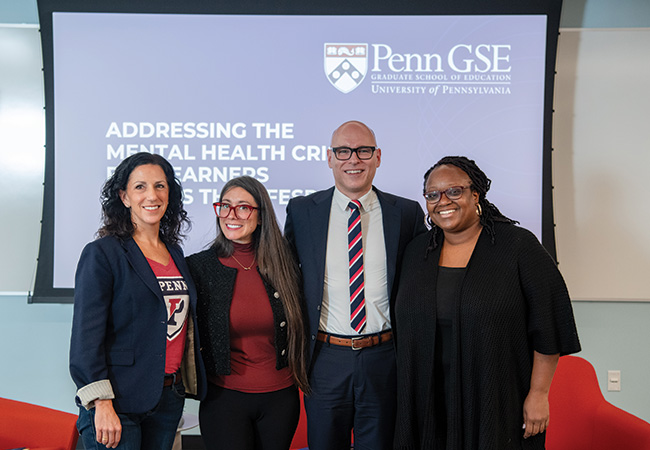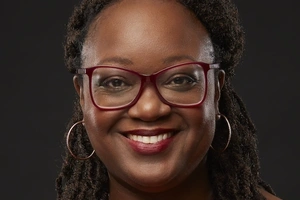Biography
Ariane Thomas is a PA licensed clinical psychologist who has been working in Philadelphia and surrounding communities for over a decade. At Penn GSE she serves as a Lecturer in Educational Practice and Associate Director for Professional Training (Internship).
An expert in both psychology and law, Dr. Thomas received her M.A. and Psy.D. from the Institute for Graduate Clinical Psychology at Widener University, and simultaneously earned a J.D. from the Widener University School of Law in Delaware. In addition to writing her dissertation on the legal and psychological implications of violence in sports, she spent two years as a staff member and on the editorial board of the Widener Law Symposium Journal (currently known as Widener Law Review).
Dr. Thomas teaches courses in the Counseling and Mental Health Services program and the School and Mental Health Counseling program. Her courses include Ethics, Internship Seminar, Advanced Psychology of Women, and Advanced Skills, where she explores matters of social justice, including ensuring that counseling services are accessible to marginalized communities, as the foundation of ethical counseling practice.
Dr. Thomas maintains a private psychotherapy practice working with individuals confronting a variety of challenges, including depression, anxiety, work stress, relationship issues, racial stress, and racial identity development. In her private practice, she also works with athletes at various stages of development, addressing issues affecting them most evidently outside of their sports, with the purpose of enhancing their functioning both on and off fields of play. She also provides cost-free treatment to military veterans with trauma disorders and other mental health issues through the organization Give an Hour and offers sliding scale and cost-free treatment for Black Lives Matter advocates.
Education
- Psy.D. (Clinical Psychology) Widener University, 2001
- J.D. Widener University School of Law, 2001
- M.A. (Clinical Psychology) Widener University, 1999
- B.S. (Spanish) Georgetown University, 1993
Areas of Expertise
- Law and psychology
- Ethics in counseling
- Professional training for counselors
- Psychological development of athletes
More Information
Academic Programs
Professional Counseling, M.Phil.Ed. School and Mental Health Counseling, M.S.Ed.Research Interests and Current Projects
One of Dr. Thomas’s passions is working with elite athletes. Specifically, her research interests involve exploring the distinct developmental challenges and stressors affecting elite athletes, such as character and racial identity development in early stages, and grief and loss experienced at the end of their careers.Education



